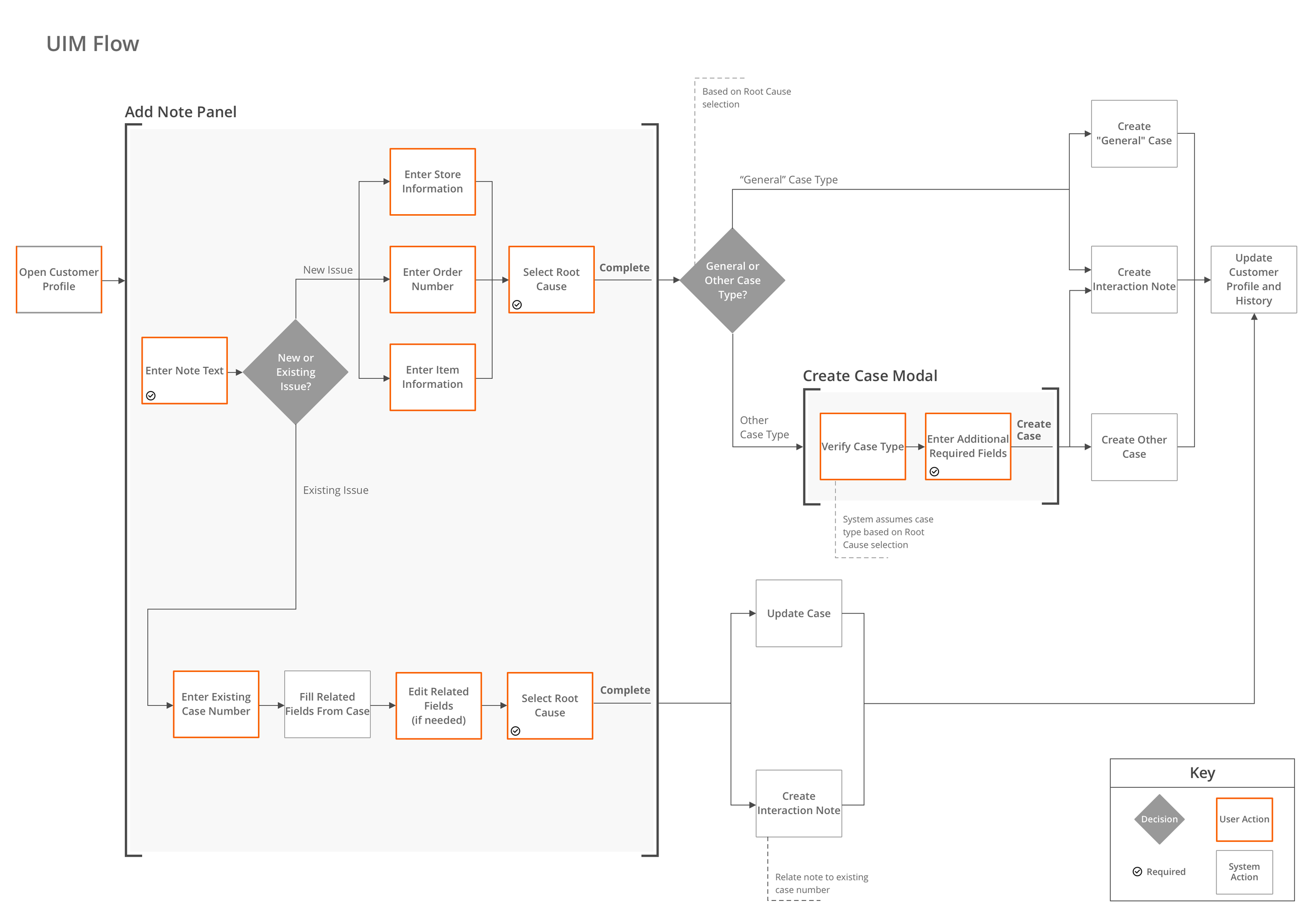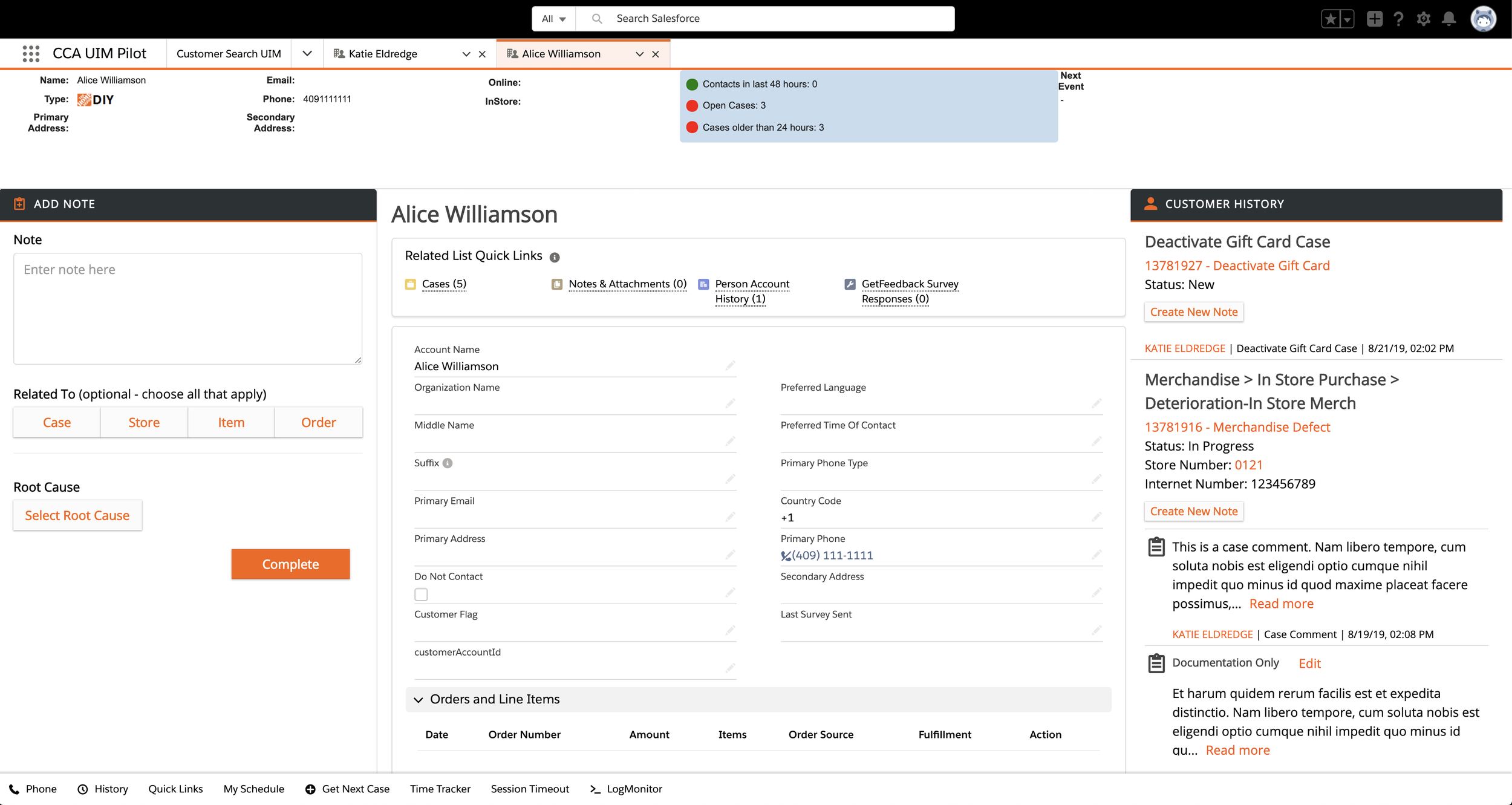Project Overview
As a Senior UX Designer at The Home Depot, my focus was on enhancing the Contact Center Experience across Customer Care, Online Contact Center, and Home Services. This involved addressing key challenges faced by both customers and associates, particularly the need to repeat information and inconsistent systems between centers.
Full Stack Design | The Home Depot | February 2018 - October 2019 (1 year and 6 months)
Framing
Before I joined the team, some discovery work had already been done to define a prioritized problem, a key pain point driving that problem and an initial solution.
Problem Statement: As a customer, I have to repeat myself multiple times to an associate about my issue or contact.
Pain Point: Contact Centers do not have the same view in CRM, and Care does not have access to CDA, which prevents business units from sharing customer touchpoints.
Unified Interaction Modal: The alignment of both centers around a shared process and language, built on a shared system for capturing customer touchpoints.
Discovery
Conducted 32 interviews with Care and Online Contact Center leaders.
Reviewed reporting dashboards and associate training materials.
Side-by-side sessions with 30 associates to understand day-to-day challenges.
Identified significant differences in how centers document interactions, track follow-ups, and report data.
Findings
The contact centers are significantly different in the way they…
Document customer interactions (method and content)
Track follow-up work needed to resolve customer issues
Structure their teams and escalation paths
Resolve customer issues
Report data back to the business
Current Process Differences
How would each contact center document this simple scenario: A customer contacts The Home Depot with a simple question that the first associate they speak to can answer.
Customer Care
Online Contact Center
Framing
Workshop Series
Now that we identified the major discrepancies between the contact centers, we set up a series of workshops to facilitate conversations around developing shared processes. Our workshop series touched on the following areas:
Who Handles What (Transfers & Training)?
Escalation Process And Team Structure
Reporting In New System
Shared External Reporting
Case and Notes
What Is Categorization Used For?
What Are The Categories?
Content Of Notes
Path To Resolving Customer Issues
Customer Care Pilot
After a few of these workshops, we determined that we needed a more hands-on approach to find the right solution. We set up a 2 month pilot with about 15 Customer Care agents with the following plan:
Hypothesis: Decrease Average Handle Time & Increase Associate Satisfactions
Benefits to the Business: Determine new business reports, determine associate performance metrics, develop training and communication strategies
Benefits to the Product Team: Determine and prioritize enhancements
I went ahead and designed the experience we expected to implement.
Mapping the new documentation model for both call centers to use.
Once we got general alignment with the new flow, I worked with my product and engineering partners to build out an MVP of the new solution. We prioritized base functionality that would drive the new process and added more advanced usability improvements to a backlog. The focus was to prove the value of this new system and process.
Screenshot from the pilot product that introduced the concept of interaction notes and a Customer History summary to Customer Care associates.
Tracking Success
We conducted a pre-pilot and a post-pilot survey focusing on needed enhancements, areas of friction, and measurements of success.





